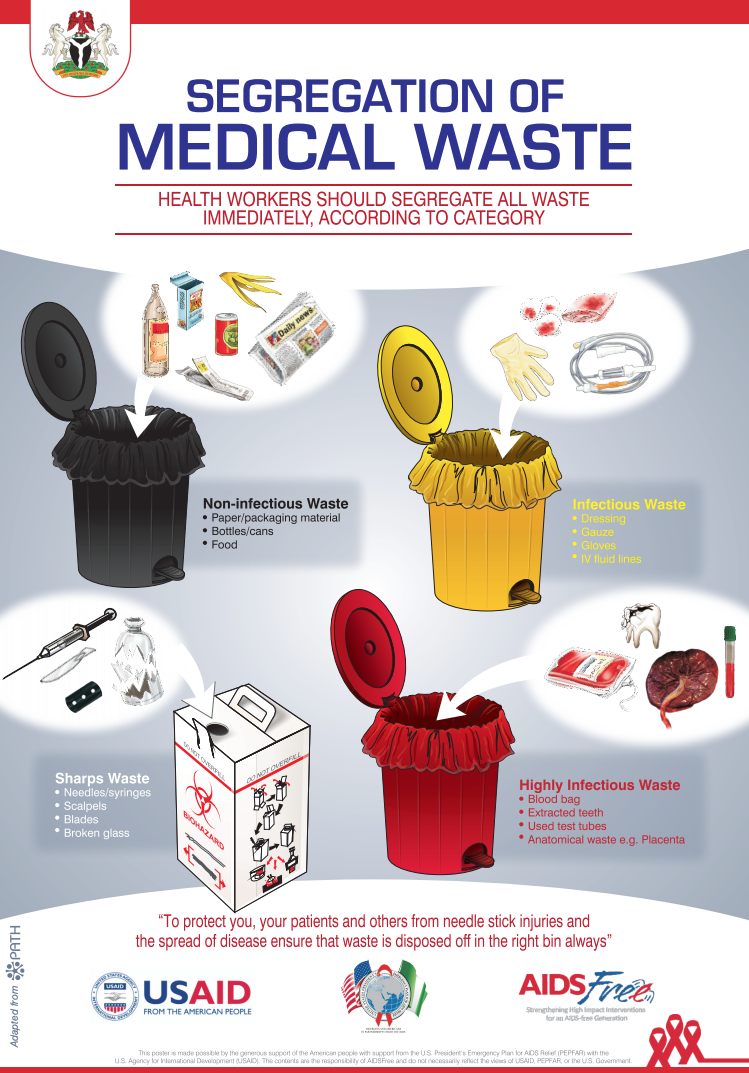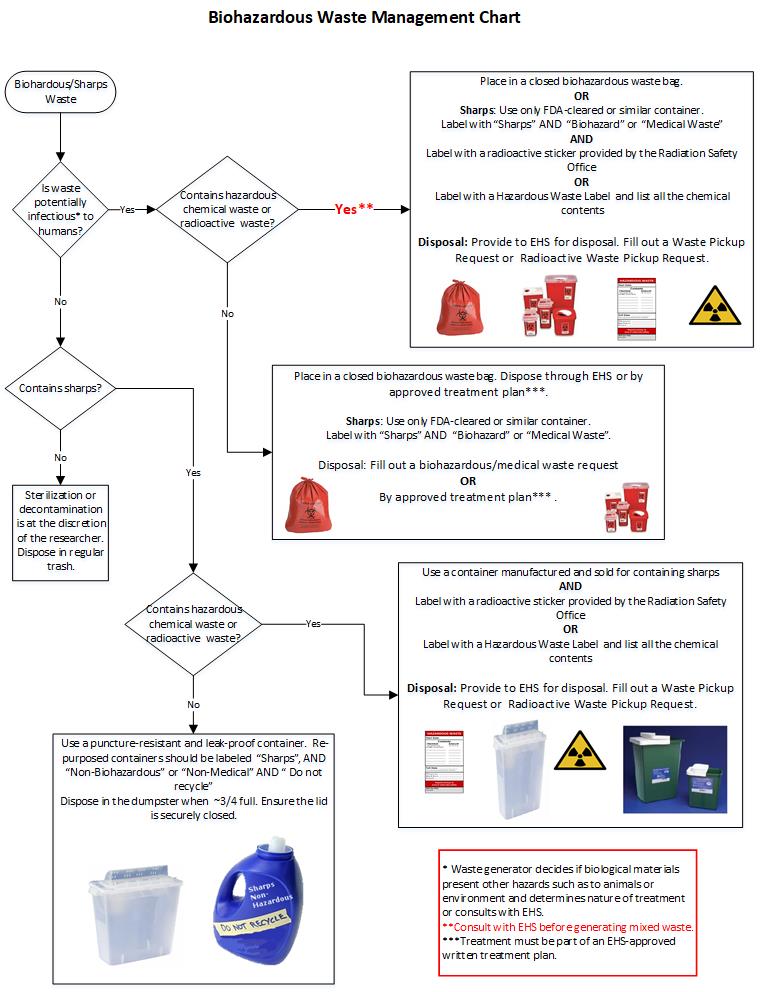Ensuring Safe Handling and Disposal of Medical Waste
Guaranteeing secure handling and disposal of clinical waste is of paramount value in medical care setups. Incorrect management of medical waste can position considerable dangers to the setting, public health, and medical care workers. This requires adherence to strict standards and protocols for its secure handling and disposal. In this intro, we will explore the value of proper clinical waste management, the risks related to inappropriate handling and disposal, along with the guidelines and techniques that can be implemented to ensure its risk-free disposal. Additionally, we will go over the importance of training and education and learning for health care specialists in order to preserve a clean and secure health care environment. By following these practices, we can effectively minimize the possible threats associated with medical waste.
Significance of Correct Medical Waste Monitoring
Proper clinical waste management is of utmost value in ensuring the safety and security and wellness of healthcare professionals, clients, and the public. Clinical waste describes any type of waste generated by health care centers during the diagnosis, therapy, or booster shot of people or pets. This waste can present major health risks otherwise taken care of and disposed of effectively.
Among the key factors why appropriate clinical waste administration is vital is to stop the spread of contagious illness. Medical waste, such as utilized needles, infected dressings, and biological materials, can lug harmful microorganisms. Otherwise taken care of and gotten rid of properly, these pathogens can be transferred to healthcare workers, patients, waste trainers, and also the basic public, leading to the potential episode of conditions.
In addition, proper medical waste management helps secure the setting - medical waste disposal. Medical waste contains hazardous materials, consisting of chemicals, pharmaceuticals, and contaminated compounds. When not managed suitably, these compounds can pollute soil, water bodies, and the air, presenting a substantial danger to communities and public health
Moreover, reliable clinical waste management makes certain compliance with neighborhood guidelines and worldwide standards. Governments and regulatory bodies have actually developed standards and procedures to guarantee the risk-free handling, storage space, transport, and disposal of clinical waste. Sticking to these policies is important to stay clear of lawful effects and keep the reputation and credibility of medical care centers.
Risks of Improper Handling and Disposal

If medical waste is not properly disposed of,Patients can additionally be revealed to these infectious conditions. If polluted needles or various other sharps are not disposed of in designated puncture-proof containers, they might inadvertently puncture individuals, leading to potential infections. Furthermore, if clinical waste is not segregated properly, there is a risk of cross-contamination between different kinds of waste, additional increasing the chances of condition transmission.
Inappropriate disposal of clinical waste can also have harmful effects on the environment and the public. If clinical waste is not treated and thrown away properly, it can pollute water resources, soil, and air, resulting in the spread of diseases and toxins. This can have long-term repercussions on communities and public health and wellness.
Guidelines for Safe Handling of Medical Waste
Implementing effective methods for the secure handling of medical waste is important in guaranteeing the security of medical care specialists, clients, and the general public. These guidelines are essential in reducing the threats associated with the handling and disposal of medical waste, such as infections, injuries, and ecological pollution.
First and primary, medical care centers have to develop an extensive waste monitoring strategy that complies with regional, national, and global laws. This plan needs to include clear directions on waste partition, packaging, transport, storage, and labeling. It is crucial to separate various sorts of waste, such as sharps, contagious products, drugs, and non-hazardous waste, to avoid cross-contamination and advertise risk-free disposal.
Additionally, healthcare personnel need to get complete training on appropriate waste handling techniques. They need to be informed on the possible hazards of clinical waste, the suitable use personal safety tools (PPE), and the appropriate procedures for taking care of, carrying, and getting rid of various kinds of waste.
Additionally, health care centers ought to on a regular basis check and investigate their waste administration methods to guarantee conformity with guidelines. This consists of conducting normal examinations, evaluating waste handling treatments, and supplying responses and training to employee.
Efficient Approaches for Waste Disposal
To make sure the risk-free handling and disposal of medical waste, it is vital to employ reliable techniques for waste disposal. Clinical waste can pose considerable dangers to public health and wellness and the environment if not taken care of and dealt with correctly. For that reason, medical care facilities and waste administration organizations should execute appropriate approaches to alleviate these risks.
It includes dividing different types of clinical waste based on their features. Healthcare centers ought to offer clear standards and training to team participants on exactly how to set apart waste correctly.

Moreover, medical care centers need to collaborate with licensed waste monitoring business to make certain correct disposal of clinical waste. These firms have the knowledge and tools called for to securely deal with and dispose of clinical waste in conformity with guidelines and ideal techniques.
Training and Education for Healthcare Professionals
Health care experts play an essential function in guaranteeing the safe handling and disposal of medical waste through extensive training and education and learning. It is vital for healthcare providers to have a deep understanding of the possible dangers connected with clinical waste and the appropriate protocols for its monitoring. By obtaining proper training, healthcare professionals can decrease the prospective transmission of infectious conditions, avoid ecological contamination, and secure both themselves and the general public.

Furthermore, training programs need to highlight the use of individual safety tools (PPE) and proper hand hygiene methods when managing medical waste. medical waste disposal service. Medical care experts must understand exactly how to properly dispose and use of PPE to protect themselves from prospective direct exposure to unsafe products. They ought to also be educated on the significance of regular handwashing and the proper use hand sanitizers to reduce the spread of transmittable conditions
Continuing education and learning and routine updates on clinical waste management methods are crucial for health care professionals. As regulations and This Site standards progress, it is important to maintain healthcare suppliers notified about any type of changes in protocols and best practices. This will certainly guarantee that they remain up-to-date and maintain a high criterion of safety in getting rid of and handling of medical waste.
Final Thought
To conclude, appropriate handling and disposal of clinical waste is vital to make sure the security of health care specialists, patients, and the environment. Overlooking to comply with laws and standards can result in numerous dangers and threats. Executing efficient methods for garbage disposal and offering proper training and education and learning for health care experts are essential in maintaining a safe healthcare setting. By adhering to these practices, we can reduce the potential threats related to clinical waste.
Clinical waste refers to any type of waste created by medical care facilities throughout the diagnosis, therapy, or immunization of human beings or pets. If medical waste is not set apart effectively, there is a threat of cross-contamination between different kinds of waste, more enhancing the chances of disease transmission.
It is important to divide various kinds of waste, such as sharps, transmittable materials, drugs, and non-hazardous waste, to stop cross-contamination and promote secure disposal. WasteX Medical Waste Disposal.
To ensure the secure handling and disposal of medical waste, it is important to utilize reliable methods for waste disposal. In addition, healthcare facilities ought to establish a normal waste collection and transportation timetable to avoid waste buildup and decrease the risk of crashes or contamination.